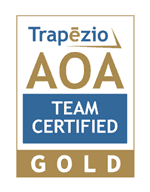You’ve decided it’s time for treatment with braces. You’re ready to get the smile of your dreams. You visit Smith & Davis Orthodontics and get 3M Clarity clear braces, and you’re off on your treatment journey.
Do you know what’s in store? It may seem that there’s nothing to it, but there are actually a few rules you need to remember to have the best treatment possible. Do you know what foods you can eat, and what foods you have to avoid? What do you do if a band or bracket comes loose?
Smith & Davis Orthodontics has the answers to these questions and more. We’re here to guide you through your treatment journey, no matter what questions you may have. Let’s start with some of the most common questions about treatment with braces.
What Can I Eat With Braces?
This may be one of the most common questions we have, along with the next one. Most people have heard about food restrictions with braces. But what CAN you eat with braces?
You have lots of options when it comes to foods you can eat with braces. The foods are generally healthy for you, so you may find yourself having a better diet and maybe even losing a little weight with your braces because some of what you CAN’T eat includes what people consider to be “junk” food.
So here’s a list of some of the foods you can enjoy while wearing your braces.
- Dairy — soft cheese, pudding, milk-based drinks
- Soft bread — soft tortillas, pancakes, muffins with no nuts
- Grains — pasta, soft-cooked rice
- Meats/poultry — soft-cooked chicken, meatballs, lunch meats
- Seafood — tuna, salmon, crab cakes
- Vegetables — mashed potatoes, steamed spinach, beans
- Fruit — applesauce, bananas, fruit juices
- Soft treats — ice cream without nuts, milkshakes, Jell-O, soft cake
What Foods Can’t I Eat With Braces?
You’ve seen a long list of some of the foods you can enjoy while wearing braces. But what about those food restrictions you’ve heard so much about? There are a few types of foods you need to avoid while wearing braces. Otherwise, you can damage your braces by bending or breaking wires, loosening brackets, or popping brackets off your teeth.
The good news is, these restrictions are temporary. Once your braces are off, you’ll be able to enjoy these foods once again.
Here are the foods to avoid:
- Chewy foods — bagels, licorice
- Crunchy foods — popcorn, tortilla chips, ice
- Sticky foods — gum, caramel candies
- Hard foods — nuts, hard candies
- Foods that require biting with front teeth — apples, carrots, corn on the cob
There are alternatives to some of these. For example, you can’t bite into an apple, but you can enjoy applesauce. Bagels aren’t good to eat, but soft breads shouldn’t be a problem. Hard candies are no good, but you can enjoy a piece of chocolate once in a while.
What Do I Do About Discomfort With Braces?
During the first week or so, your mouth will be a little sore as it adjusts to your new braces. This is expected because, after all, you just had a bunch of little foreign objects put into your mouth that are trying to move your teeth from where they are now.
The good news is, this should only last for a few days. The discomfort should subside after a few days and be gone in about a week. You may have some mild discomfort after adjustments, too. Once again, the feeling should be temporary.
If you experience this discomfort, here are a few suggestions on what you can do to soothe your mouth.
- Saltwater Rinse: Dissolve a teaspoon of salt into eight ounces of lukewarm water, rinse your mouth and gums well with the saltwater, then spit it out.
- Painkillers: An over-the-counter painkiller, such as aspirin or ibuprofen, can be taken if the saltwater rinse doesn’t bring enough relief.
This discomfort may extend to your lips, cheeks, and tongue as they adjust to those little foreign objects. They will “toughen up” over time and shouldn’t cause discomfort after the first week or two. If you still have issues, ask us for some dental wax. You can place the dental wax, also called braces wax, over the brackets that are causing the irritation. Be sure to use dental wax ONLY. (No trying to stick candle wax in your mouth or something!)
Should I Worry About Loose Teeth?
You may feel like you have a few loose teeth within the first few days of getting your braces. Relax! This is normal, and it’s actually a good thing.
Your teeth are held in place by tight ligaments and even tighter bone. Your braces apply constant, gentle pressure that loosens those ligaments and causes that bone to break down and rebuild itself. Naturally, your teeth may feel a bit loose the first few days. They may also feel a little loose after each adjustment. Again, this is normal! After a few days, they should tighten back up.
If you have a tooth that becomes very loose or stays that way, give us a call! We’ll get you in and take a look.
Should I Worry About Loose Wires and Bands?
You may follow the rules we give you, but sooner or later, there is a chance a wire will come loose or break, a bracket may pop off, or a band may loosen on your back teeth. This could happen for a number of reasons. You may bite down wrong on a piece of food, you may get hit in the mouth by something, or you may think you can much on “just one” tortilla chip. Whatever the case, there’s a chance you’ll need a repair at some point.
Don’t worry! We see this all the time. No judgment will befall you. Well, maybe a raised eyebrow over the tortilla chips (plural, because no one can eat just ONE tortilla chip). Just give us a call as soon as you can, and we will work to get you in and take care of the repair ASAP. If you have a piece that’s actually come off your braces, bring it with you!
What if you have a wire that’s poking the side of your mouth or your tongue? Ouch! You may be able to fix it temporarily by using the back of a spoon or the eraser of a pencil (you do still have those, right?) and pushing the wire back into place GENTLY. If a loose wire is bothering your lips, cheeks, or tongue, you can use that dental wax we mentioned to cover the offending wire and stop the pain. Once again, give us a call and let us take care of it!
Do I Really Have to Follow All These Rules?
There is a lot more to braces treatment than just what we put on your teeth. You may also need rubber bands, headgear, retainers, a tongue crib, or other appliances. It may seem complicated, but it isn’t, as long as you follow the instructions of your orthodontist!
Let’s be honest, it may not always be fun to wear your headgear at night. You might have a rubber band that slips off its post and pops you in the lip. You may be tempted to skip a night with the headgear or a day with the rubber bands. We have a bit of advice: Don’t do it! Not following instructions could prolong the time you have to wear your braces, or you may not get your teeth as straight as they should be. If you want the perfect smile, you need to follow instructions. Trust us, it will go faster and yield better results if you stick with the plan!
Do I Need to Brush and Floss Regularly?
You may think that all these orthodontist visits mean you don’t have to brush and floss as often. You may look at your braces and wonder how on earth you’re going to keep your teeth clean with all these brackets and wires everywhere.
Regardless of whether you wear braces or not, you need to maintain good oral hygiene. It’s vital to your overall oral health. In addition, not brushing properly during braces treatment can lead to white spots forming around your braces. That’s because the plaque that builds up on your teeth will eat away at the enamel and cause demineralization, which shows up as white spots on your teeth. So be sure to brush and floss regularly!
Worried about how you’re going to get around your braces? No problem! We can teach you how to choose the right toothbrush and how to use dental floss threaders to get under the wires and make it easier to floss.
Should I Use a Mouthguard With Braces?
We know a lot of our patients enjoy playing sports, but you may worry about what can happen with your braces (or your mouth!) if you get bonked with a ball. The last thing we want is for you to damage the inside of your mouth on your braces. However, we also don’t want you to damage your braces.
The easiest way to avoid both is to use a mouthguard while you play sports. A mouthguard will protect your teeth and your braces from damage if your mouth takes a hit.
What happens if you do get hit? If you’re injured, get treatment right away. Once you’re taken care of, give us a call so we can check on your braces. We’ll look for any damage and make any repairs necessary.
If you do have some discomfort afterward, we recommend you rinse your mouth with warm saltwater. Use your dental wax to cover any wire breaks until we can see you.
What If I Have More Questions?
These are some of the more common questions, but we’re sure you may have a few others. That’s why we’re here! If you’re in the Rogers, AR, area, you can contact Smith & Davis Orthodontics with any questions or concerns you may have about your braces.
If you don’t have braces yet but you’re ready to get started, or if you’re interested in clear aligner treatment with Invisalign or Invisalign Teen, you can start with a free virtual consult or contact us to schedule an appointment.










